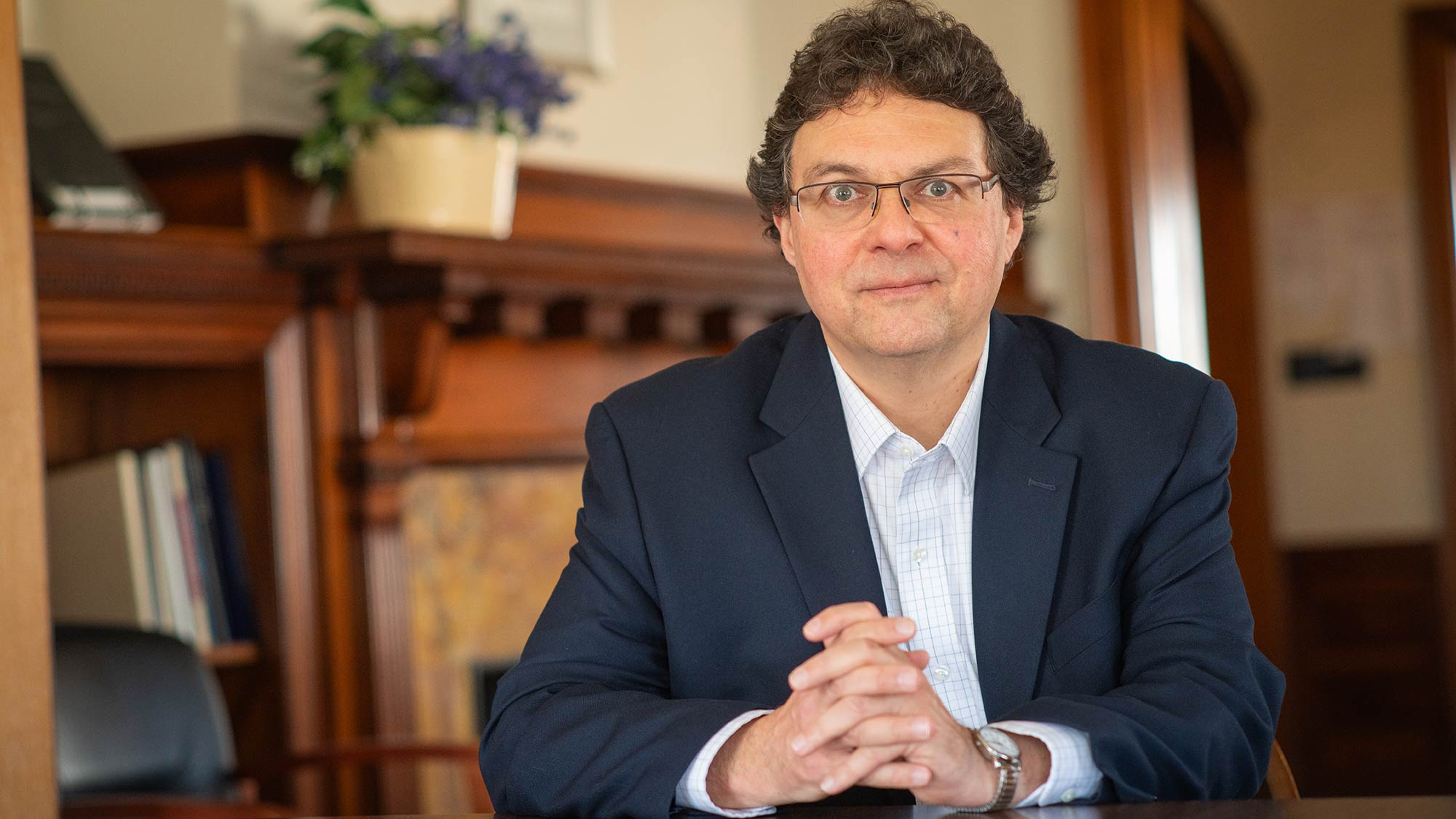As one of the world’s foremost authorities on 19th-century Austrian composer Anton Bruckner, musicologist Benjamin Korstvedt has closely studied his symphonies and life. In 2024, when Austria celebrated the 100th anniversary of Bruckner’s birth, Korstvedt traveled throughout Europe and the U.S. to speak about the composer’s music and often-contradictory images, from unsophisticated country bumpkin to dangerous musical radical. “Every characterization of Bruckner emerges in a specific time and place—and is always shaped by the cultural tendencies and sociopolitical pressure of the moment,” says Clark’s Jeppson Professor of Music.

Musicologist recovers the legacy of composer Anton Bruckner
Most infamously, Bruckner’s image and his music were exploited in the 1930s with the rise of Adolf Hitler, who claimed the composer as a fellow German, symbolically annexing him just as he would politically and militarily annex Austria.
In his research, Korstvedt became aware of “striking contradictions” in the historical evidence pertaining to Bruckner’s Fourth Symphony. The version of the Fourth published during Bruckner’s lifetime, the musicologist says, “was commonly believed to have been mutilated by editors and possibly even produced without his awareness or agreement.
“The more I delved into it, the clearer it became to me that much of that scholarly work was strongly shaped by the ideological context” of Nazi Germany, Korstvedt says. He began to see that “the facts told a much different story.”
In Austria, he examined a set of archival photographs of a crucial but long overlooked document from the symphony’s compositional process: a copy of the score prepared by Ferdinand Löwe, a former student of Bruckner’s who later became a leading conductor.
His research convinced him that this version of the Fourth was not a corruption of Bruckner’s wishes but rather a clear expression of his final intentions. The photographs reveal that “Bruckner had worked over the score closely and made many of the most important changes,” Korstvedt explains. “He was totally involved in the process.”
Korstvedt’s discovery made waves in and outside of Austria. The managing editor of the Bruckner Collected Works asked him to prepare a new critical edition of this version of the Fourth, which now has been performed across the world, fostering fresh insights into the composer’s musical thinking and creative process. He also has published two books: Bruckner’s Fourth: The Biography of a Symphony and Bruckner: Symphony No. 8.

